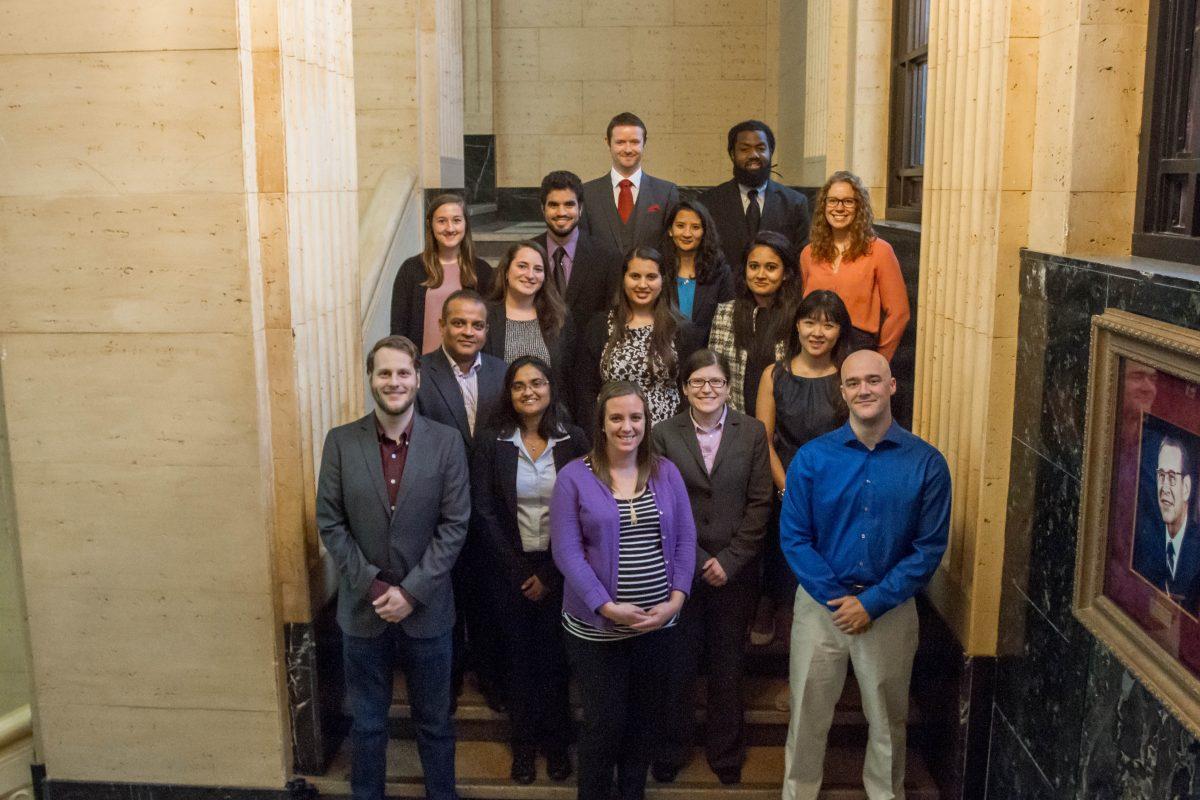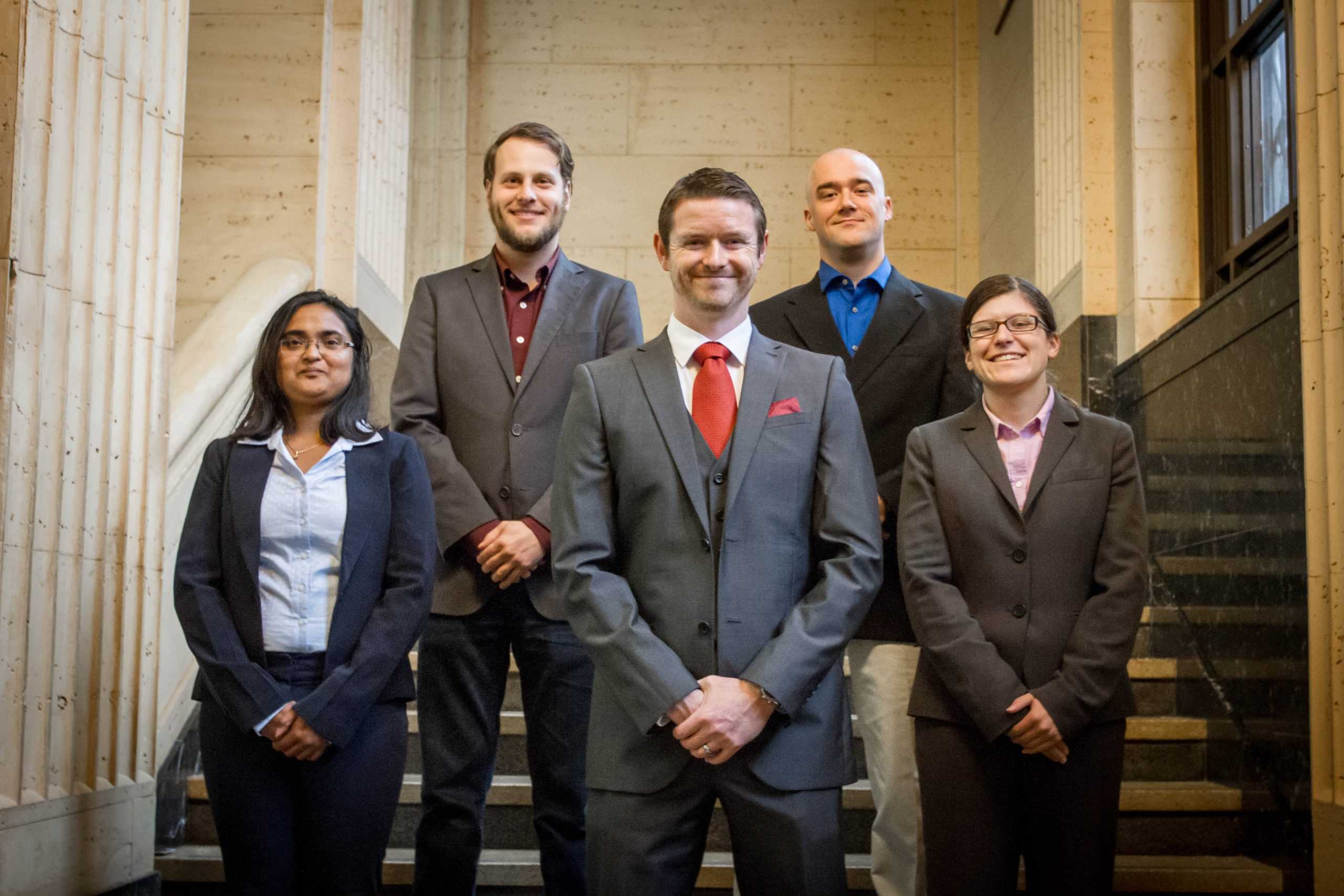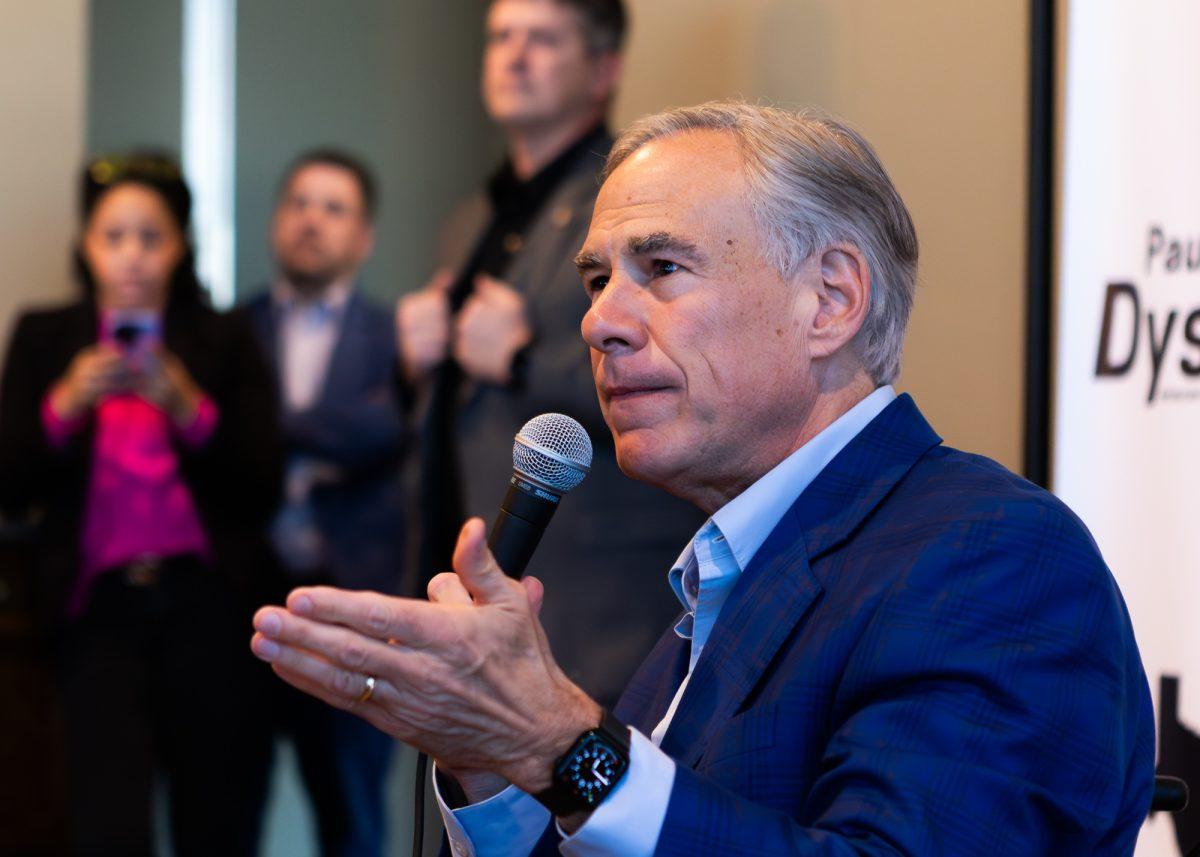Over the past 50 years the Graduate and Professional Student Council (GPSC) has made an impact on 20 percent of the student population with the mission to provide a voice to represent these students.
The GPSC was founded in 1967 by former Academic Vice President and Dean of the Graduate College Wayne C. Gall as an advisory board to the Dean of the Graduate College. Over the course of the first decade, the GPSC aimed to convey graduate student opinions on topics such as bus routes, parking, off-campus housing and the creation of spouse access cards.
“We are under the dean of student life, so having a dean or provost who is intentional in helping out the graduate and professional community is the reason the GPSC is still around and still supported,” Taylor Smith, 2012-2013 GPSC President said. “It helps graduate and professional students stay relevant on campus and aware of what’s going, and this helps the community at large.”
During its second decade of its inception, the GPSC worked to establish a graduate student orientation program, move the Q-Drop deadline and partner with the Corps of Cadets to mentor freshmen in the Corps which started in 1980s.
“The GPSC has reminded Texas A&M of the existence and importance of graduate and professional students,” Brittany Bounds, 2013 – 2014 GPSC President, said. “Since A&M has such a large undergraduate population with strong representation through the SBP and MSC President and councils, it seemed at times that grad students were marginalized in discussions.”
The GPSC continued to work with the Student Government Association and administration over issues such as graduate student representation, resources on campus for graduate students and legislation passed by the state legislature.
“I think from where we started in 1967 to where we are now, we’ve made huge strides in terms of becoming a fully fledged recognized organization,” current GPSC President Matthew Etchells said. “We are at the point where we are the voice of the graduates. I think that is really significant for us as an organization because of the nature of graduate versus undergraduate needs.”
One of the more recent accomplishments of the GPSC happened in 2015 under the direction of former president Marisa Biondi ,who established a research spotlight that features graduate student research on the GPSC website and is still in place today.
“We have amazing graduate students doing really cool research all over campus, and I wanted to be able to highlight that and show it better,” Biondi said. “It was really cool to see all the great researchers who were doing great work, and we were able to celebrate them and grow our own network.”
In terms of the future of the GPSC, Etchells said one of the goals is to continue to build relationships with undergraduate students and administration.
“I think from where we are now to where we’d like to be, I think there is a lot of positive progress going to happen,” Etchells said. “For me the biggest thing, is that bridge building aspect. I’m doing a lot in terms of reaching out to organizations to get people together.”
Biondi said the GPSC is more than just a student council. It’s a central place for students to network and find answers to issues on campus.
“Having a place where we can build our leadership skills, communicate together and grow our professional network is a really important thing,” Biondi said. “[Graduate and professional students] come to us for input and answers on how to address things on campus, and that is a really great thing to be able to be recognized and sought out for our advice.”
Etchells said in the past there has been a divide between graduates and undergraduates. However, Etchells said they are the more similar but just a little farther down the road.
“We are all trying to figure out who we are just like undergraduates are and are all in this learning experience together,” Etchells said. “We are the undergrads just 20 years down the road. That’s the only difference. We are all maroon on the inside.”
Bounds believes the GPSC will continue to make impacts and create relationships with administration and undergraduate students well into the next 50 years.
“I believe the GPSC will continue to be the advocate for graduate and professional students and proactively seek ways to make life better for these students,” Bounds said. “There are always ways that the university can improve the quality of life for students, and the GPSC will continue to champion these causes.”










